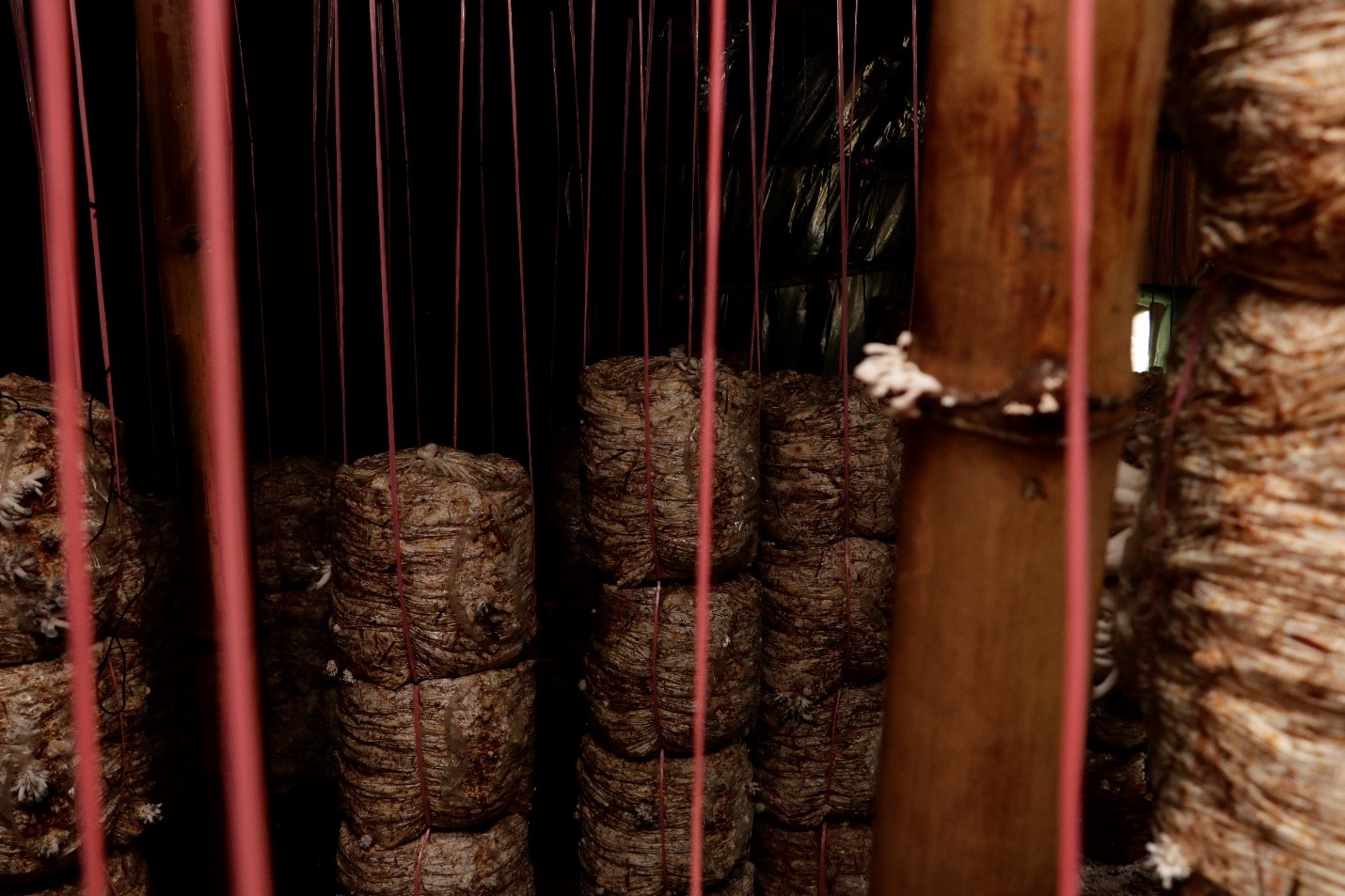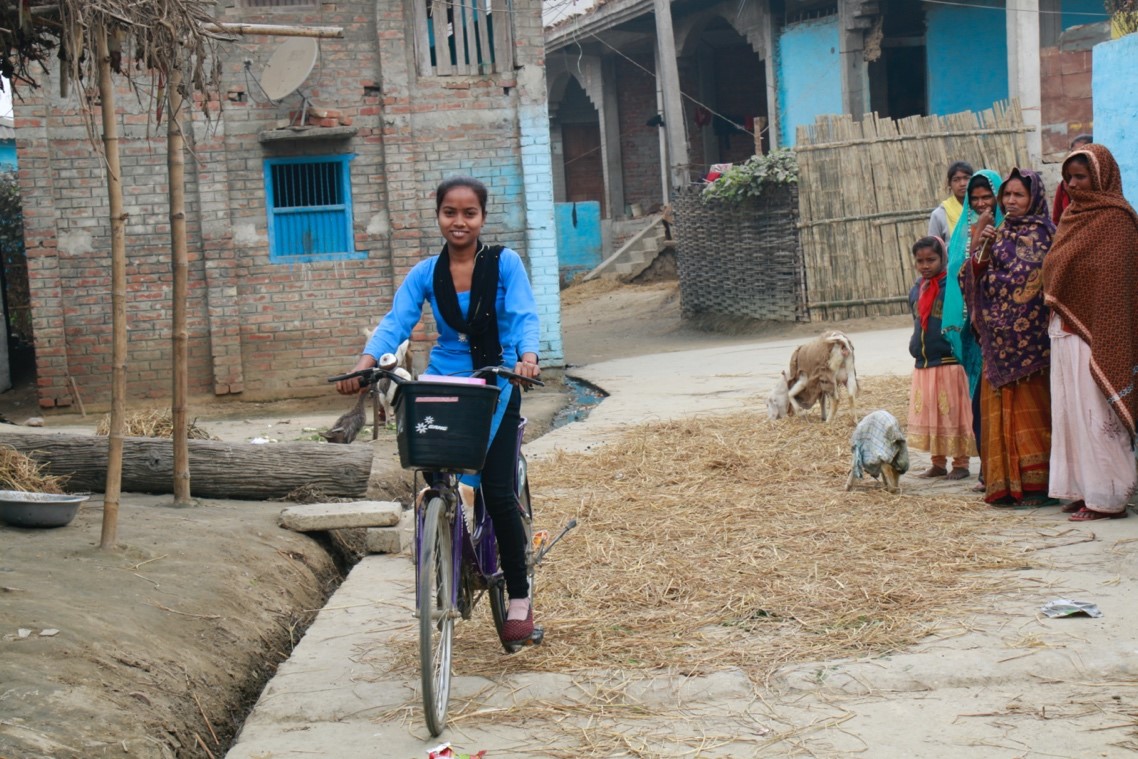Ensuring livelihood through mushroom farming

Ensuring livelihood through mushroom farming Mohan Rai, resident of Rai Gaun, Gajuri RM, Dhading district worked at the local sand quarry on a regular basis. This was his sole source of income to feed his family of eight. Three years back, Mohan had heard about the benefits of mushroom farming from a person in his village. Mohan and his brother decided to take up mushroom farming and built a polyhouse in the small plot of land they had. However, their attempt failed, as both the brothers did not have much knowledge about mushroom farming. “When BIHANI project staff came to my house, I told them about wanting to take up mushroom farming again. One does not need a lot of space to farm, and since I only have a small plot of land, it made sense,” informed Mohan. “I am not that educated, so the only option I had was to work at the sand quarry. Most of the men and even women from my village work there. I earned around NPR 500 per day sifting sand which required a lot of physical and hard work, so I thought maybe mushroom farming would be a better option,” recalls Mohan. With technical training from the BIHANI team along with monetary support, Mohan started mushroom farming again. “After the training, I decided to pursue mushroom farming for which I needed around NPR 60,000 for a polyhouse. The NPR 35,000 I got from BIHANI helped me a lot as I just needed to buy bamboo and seeds,” he informed. Mohan’s second attempt at mushroom farming with technical advice and training from Purnima BIHANI has paid off well. This year, he was able to sell his mushrooms for NPR 250 per kg. He plans to sell more than 100 kg of mushroom in the coming year and scale it up. Mohan only goes to the sand quarry when mushroom production is less. This has given him more time to be at home with his family. “You can grow mushrooms for most of the year. It is only difficult in the dry season as you need a lot of water. I am very hopeful of getting good produce this year. I am planning to add one more poly house,” he shared.. Mohans eldest daughter Santoshi (21) who suffers from a severe form of disability, has also received a wheelchair through BIHANI support as the project focuses to leave no one behind and ensure access to services and resources to people with disability. “ The wheelchair has been very useful as she can move around with much ease. After adopting mushroom farming, we can give more time to take care of her these days. Mushroom farming does not require a lot of time, so I can also look after the goats and the vegetable farm now,”stated Saili Rai, Mohan’s wife. She added, “The vegetables we grow at home are more nutritious, fresh and we save money as we hardly need to buy any.” Mohan revealed, “It has been good so far. Working in a sand quarry was very difficult, I don’t need to do that now. I am involved in many more things now and my family is much happier and in a better financial state. Mushroom farming has brought a lot of changes in our lives.” For smallholder farmers like Mohan, mushroom farming is a low-cost innovative farming practice that can ensure food production in small areas. This directly contributes to improvement in food security and income opportunity for resource poor households. Till date Mohan has earned NPR 220,050 from mushroom farming. With his earnings, he has also started raising poultry which has helped him diversify his income. Funded by UK Aid and managed by Mott Macdonald, DCA Nepal implements BIHANI as part of Purnima project with local partners in three rural municipalities of Dhading district namely Gajuri, Gangajamuna and Khaniyabas. The project follows inclusive and sustainable economic recovery to increase the resilience of vulnerable people affected by the earthquake by moving from an individual -based production and marketing to a group-based approach, strengthening market linkages with market actors for the sustainability of the economic activities and building the capacity of the local government for economic inclusion and recovery. The project focuses on elderly people, people with disability, internally displaced by earthquake, food insecure and single women in the reconstruction process through economic and social recovery, institutional strengthening, and physical reconstruction support.


